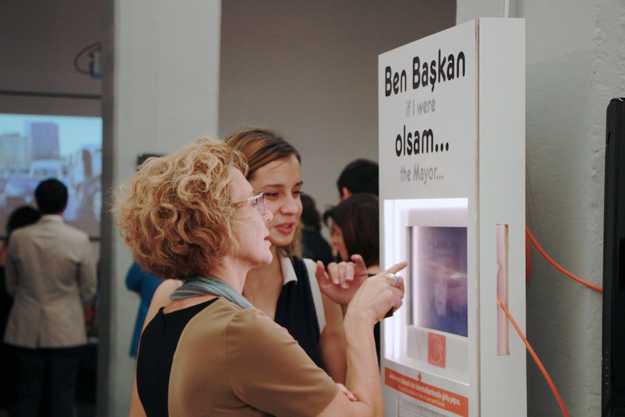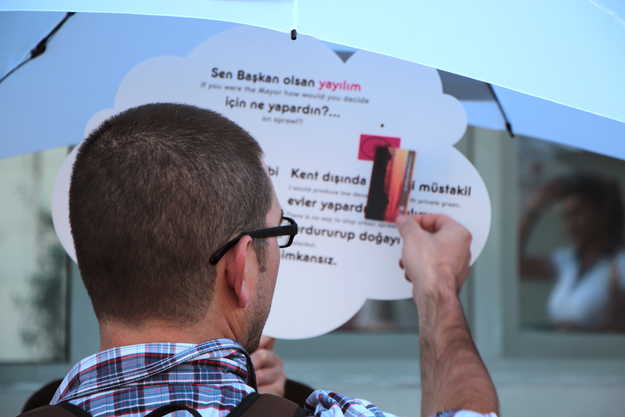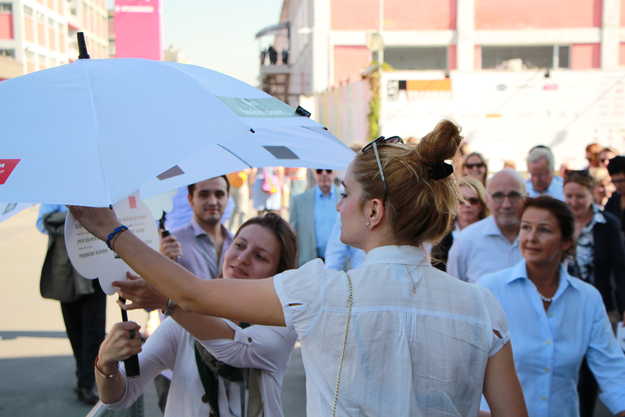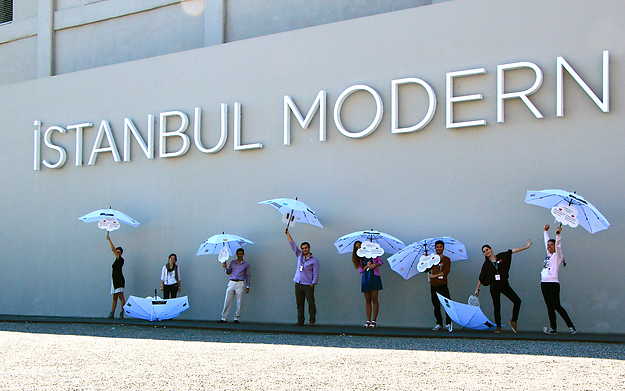Games for Cities
If I were Istanbul's Mayor (2012)
Istanbul [TR]
Developed by:
A governance game with digital polls, asking citizens of Istanbul to vote – using their public transport card – on various public planning and investment priorities for their city
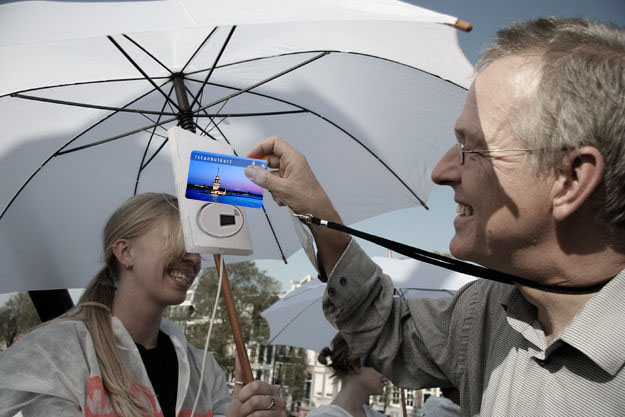
This game used new media technologies to enable a digital polling system where citizens of Istanbul could demonstrate their own planning priorities in their city using their travel cards. The purpose of this playful polling intervention was to increase awareness among Istanbul’s citizens of the multiple urban decisions and trade-offs being made in their city, in a local context where, despite a politically enthusiastic populace, political transparency is often hard to come by. During the first Design Biennial, all visitors with an Istanbulkart could take part in the vision-making process by simply tapping their own card on the preferred scenarios. Choices were then analysed using Radio Frequency Identification technology to visualise and evaluate the scenarios in real-time. Responding to dilemma’s on traffic, drinking water, food, energy, urban density, public space, shopping, transformation, investment and earthquake risk, participants could conclude what type of mayor they would make. This was represented through a combination of a number of the following descriptors: tree-hugger/gas-guzzling, radical/pragmatic, populist/globalist mayor. Over 2000 enthusiastic citizens participated in the poll, expressing their opinions on the city’s priorities.
For example, while Istanbul residents currently pay private service providers for water, 99% of voters believed that ‘free water should be a basic human right’. Although Istanbul’s water and natural environment is threatened by urban sprawl along its northern edge, citizen responses reveal a clear preference for low rise housing and low density urban growth. This is important information for Istanbul’s planning department to consider in order to work on shifting public opinion in line with the city’s densification strategies. While most of the residents were surprised to learn that 40% of the energy needs of Paris were provided through nuclear plants, a clear favour was visible for renewable energies. On the most controversial topic of Istanbul – urban transformation linked to an expected earthquake – designers asked whether residents were happy with the operations of centralist housing corporation TOKI. We could measure a clear liking to local and organic operations of entrepreneurs which would be strictly checked through official procedures.
City polls help cities to reach crowds in short amounts of time and new media technologies make participation both intriguing and fun. The results of the votes collected at the Istanbul Modern for 2 and a half days include: 9.7% supported a policy that would stop urban sprawl towards the north to preserve the city’s supply of water; 9% supported a policy that would apply a 50% discount on Istanbul-karts for locals who use solar panels; 8.8% supported a policy that would see public transport being transformed into a luxurious experience. The least supported ideas included: a policy that would initiate the demolition of neighbourhoods in earthquake sensitive areas immediately, evacuating residents in vacant TOKI homes; building more bridges in the city to accommodate increasing car ownership; accepting the inevitability of sprawl and purchasing drinking water from Bulgaria if needed. The most popular mayoral traits of participants: a Populist, Pragmatic, Tree Hugger of a mayor. The least popular mayoral traits of participants: a Global, Pragmatic, Gas-guzzler of a mayor.
